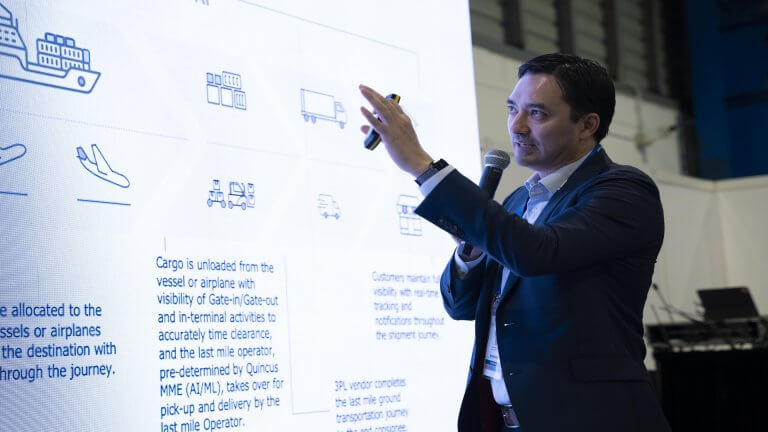
How Technology Will Help UK Supply Chains Beat Brexit and COVID-19
As the UK tries to find its balance amid a spurt of labor shortages, the environment needs to build supply chain technology into existing systems more than ever.
The UK’s exit from the single market and the subsequent clampdown on immigration did the most damage in sectors reliant on EU labor, such as haulage. Sources show that the number of EU national HGV drivers fell by 39% post-Brexit, leaving manpower gaps that remain unfilled. COVID-19 safety measures continue to disrupt new driver training, while the government is offering only a limited number of temporary visas for workers in haulage and other fields.
UK supply chain operators will have to adapt to working lean in the new normal–and this is not possible without investing in supply chain technology.
Maximize resources and future-proof your supply chain
With fewer drivers on the roads, maximizing every vehicle and every route is now a must. Technology can give fleet operators the tools they need to ensure vehicles never waste a mile and never run empty. Route optimization and intelligent load allocation enable vehicles to cover more ground in less time, meet service level agreements more efficiently, and utilize backhaul routes to make the most of their trips. The visibility into fleet movements this provides also creates more agile and responsive delivery operations, enabling dispatchers to reroute vehicles in real-time when unforeseen traffic blockages, such as crashes on motorways, occur.
Digitalization, workflow automation, and API-driven data exchange are also key enablers of supply chain efficiency in the post-Brexit UK. Automating documentation and approval processes and communication with suppliers and customs agencies eliminates delays and human errors while helping to tackle new cross-border challenges with less staff on hand. This brings significant opportunities. With a system that handles all required documentation, companies can run any routes and expand to anywhere they want.
But the benefits of supply chain technology do not stop there. Companies should bear in mind that supply chains will always need the human element. Although supply chain and logistics has historically not been the most attractive major for budding young professionals, the pandemic has given it new relevance–and UK higher learning institutions such as Cranfield University are already offering studies in this field. Modernizing the supply chain and getting tech-savvy will be vital to attracting and retaining the new wave of supply chain talent we will see in the coming years.
Brace for the post-pandemic demand surge
The other new wave that is coming for supply chains is a wave of pent-up consumer demand. Research shows that UK consumers are eager to increase their spending on discretionary items such as footwear, clothes, and electronics once COVID-19 subsides. They will want all the things they held off on buying during the pandemic–with pandemic-era expectations on delivery and service standards. With this boom in demand coming, it is no longer optional to have end-to-end visibility of what is happening down the supply chain and to have clear communication with carriers, suppliers, and other partners.
Most UK supply chain operators have learned the lessons of COVID-19 by now. Apart from dealing with supply chain disruptions and surging demand through online channels, the pandemic saw many companies losing out on opportunities such as the NHS’s PPE shortage due to lacking the technology and agility required. Leveraging supply chain technology for multi-mile visibility and control while automating repetitive processes is how UK supply chains can not only overcome staff shortages but prepare for future growth in the post-Brexit, post-COVID logistics landscape.
Sources:
https://www.instituteforgovernment.org.uk/explainers/supply-chain-problems
Subscribe to keep up with our latest news









